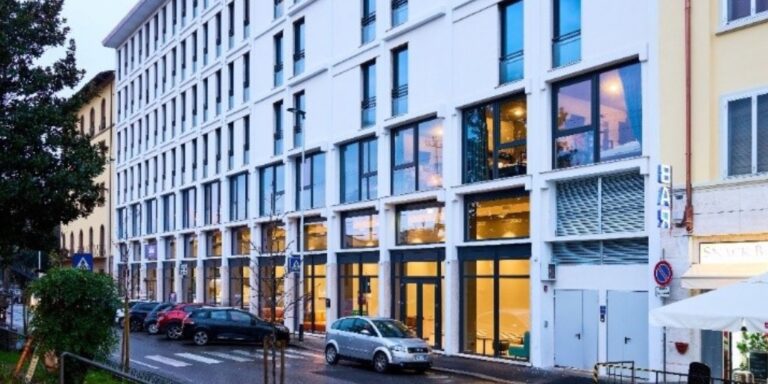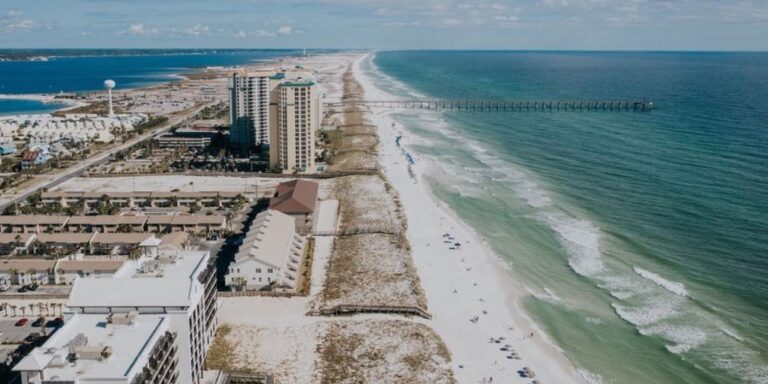dusitD2 Fudu Binhu Hotel Changzhou (Picture: Dusit International)
In our latest exclusive report, we analyse the TOPHOTELPROJECTS construction database to see what impact Covid19 is having on Dusit International’s hotel development pipeline.
No part of the global economy has been left untouched by the Covid19 pandemic. However, the decision by governments around the world to enforce lockdowns, travel bans and social distancing in order to curb the spread of coronavirus has had a particularly devastating impact on the hospitality industry.
Hospitality group Dusit International – which owns and operates more than 30 properties across 13 countries, and also has significant interests in food and education – has certainly felt the fallout from the global health emergency.
Founded in 1948, the Bangkok-headquartered company is behind the Dusit Thani, Dusit Devarana, dusitD2, Dusit Princess and ASAI Hotels brands, and in recent times has sought to diversify its hotel business by expanding rapidly overseas.
 What follows is our assessment of Dusit’s global development pipeline. To generate a more rounded picture of the business at present, we also review how the company’s share price and public statements have changed over the course of 2020, as the scale of the crisis became more and more apparent.
What follows is our assessment of Dusit’s global development pipeline. To generate a more rounded picture of the business at present, we also review how the company’s share price and public statements have changed over the course of 2020, as the scale of the crisis became more and more apparent.
Dusit’s ambitious expansion plans in numbers
While coronavirus has caused plenty of headaches for the global development community in recent weeks, Dusit appears to be largely pushing ahead with its plans to enter new markets. Our exclusive review of data from the TOPHOTELPROJECTS construction database indicates that Dusit has 43 projects in progress as of 25 May 2020, with a further six on hold and just three cancelled.
The company’s most active brands are Dusit Thani Hotels & Resorts with 17 live projects and DusitD2 Hotels & Resorts with 12, followed some distance behind by Dusit Princess Hotels & Resort (seven), Asai (five) and Dusit Devarana Hotels & Resorts (two):

We can’t say for sure whether Dusit will decide to delay or abandon further projects in future, since the full extent of the Covid19 crisis is still not clear in many countries and cities. At first glance, however, it will doubtless reassure hotel industry professionals to see that Dusit is continuing to progress more than four in five projects worldwide.
Significant fall in Dusit shares post-Covid19
The company’s ability to realise its hotel development pipeline can’t have been helped, however, by the steep fall in the value of its shares in recent months.
Shares in Dusit Thani Public Company, which are listed on the Stock Exchange of Thailand, were trading fairly steadily at just under 10 Thai baht (US$0.32) per share at the start of the year; on 23 January 2020, for example, they stood at 9.65 Thai baht per share. Yet this proved to be the calm before the storm, as their value fell within a matter of weeks to just 6.80 Thai baht per share on 23 March.
While the price has fluctuated slightly since then, the bigger picture is that the company’s shares are worth significantly less than they were until quite recently. As of 15 June, the price stood at just 7.15 Thai baht per share.
How Dusit has handled the pandemic
As a listed company, Dusit regularly updates investors on the key business challenges that it faces, and Covid19 has certainly provided plenty of obstacles for management to overcome. By taking a look at the group’s public statements over the course of 2020, we can get a fascinating insight into how the crisis is playing out on the ground.
With the benefit of hindsight, it seems extraordinary to think that Covid19 was once seen as just another potential threat, yet when Dusit posted a management discussion and analysis report to coincide with its 2019 results at the end of February 2020, that was precisely the case. In the 2020 outlook section of the document, the company predicted that the new financial year would be very challenging because of the global economic slowdown, the destabilisation of international trade, and the appreciation of Thai baht against other ASEAN currencies, although in fairness it did also note that the recent outbreak of Covid19 had had repercussions on the tourism business and international travel.
Dusit temporarily closes Thai hotels
The world was a very different place, however, by 7 April when Dusit announced that it would temporarily close all seven of its owned hotels in Thailand in response to the spread of Covid19. At the same time, the company advised that overseas hotels and those operating under management agreements might also be closed depending on local circumstances.
Moreover, investors were told there would be an impact on business performance, and so the group pledged to implement cost-control measures and reduce operating expenses in order to limit the effect on revenues and profits.
Revenues fall sharply as Dusit counts the cost of Covid19
Despite the team’s best efforts to balance the books, Dusit’s finances were hit hard by the pandemic, as becomes evident when reviewing its Q1 2020 figures, published in mid-May. Total revenues were down by 11% to 1.26 billion Thai baht (US$40.7 million) year on year, while revenues in its hotel business fell by 25% to 875 million Thai baht.
In the 2020 outlook section of its accompanying management discussion and analysis report, Dusit acknowledged that Covid19 was severely affecting the tourism industry, but noted at the time of writing that the number of new infections in Thailand was tending to decrease even though there were still lots of cases in other countries. As a result, the company expected that the next six months would primarily be a time for domestic rather than international travel, and so it was adjusting its marketing strategy by launching promotional campaigns focused more on Thai customers.
It’ll be interesting to see whether Dusit’s strategy to focus on domestic tourism in Thailand bears fruits in the short term, and how the company’s growing international presence will be affected by Covid19 longer term. However, it seems clear that the company will need to show a remarkable degree of flexibility in order to complete its development pipeline and attract customers to its properties in these extraordinary times.
Founded in 1948, Bangkok-headquartered hospitality group Dusit International is able to draw on decades of experience in the hotel sector.







